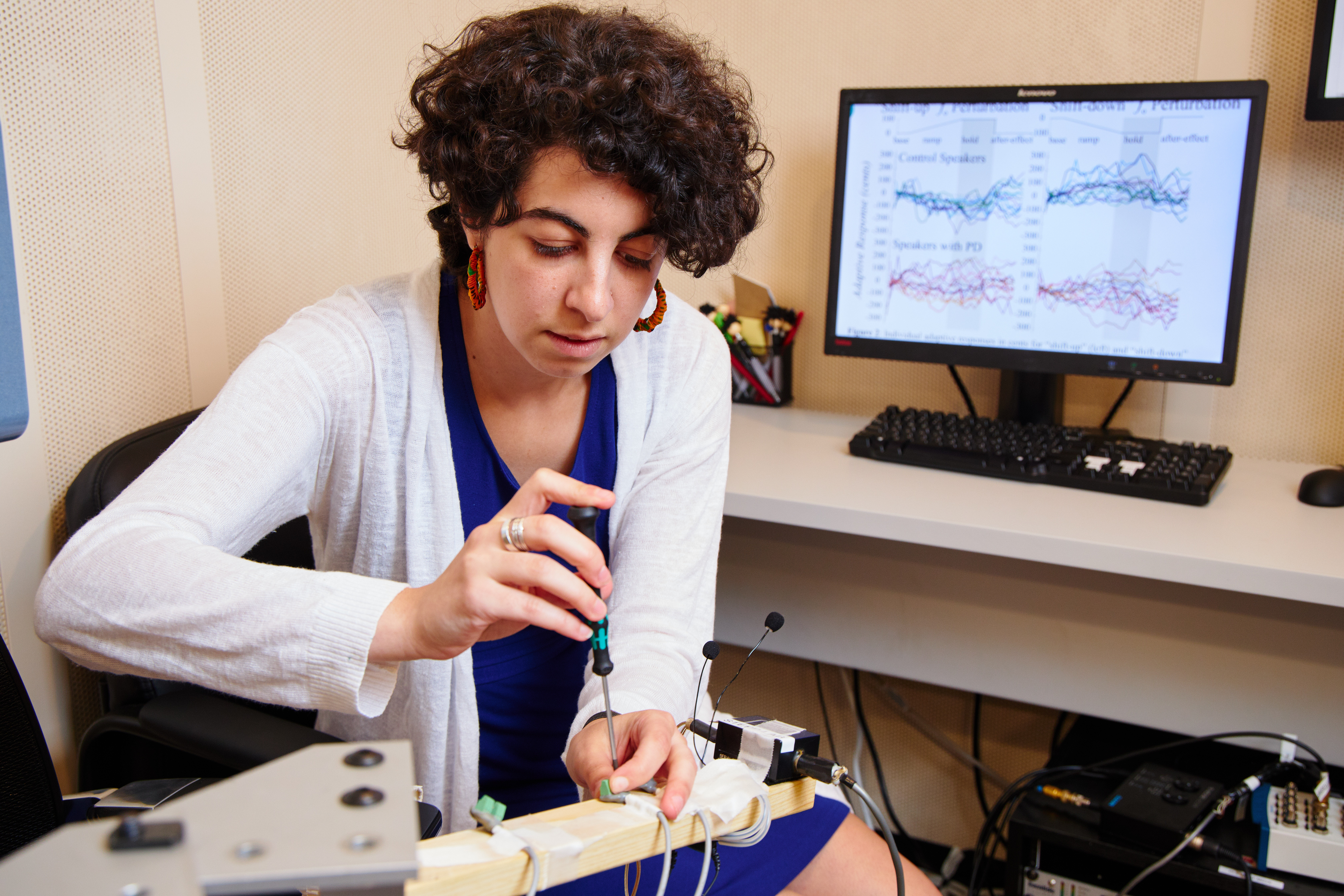
Our Work
The STEPP LAB for Sensorimotor Rehabilitation Engineering uses engineering approaches to study sensorimotor disorders of voice and speech. Our goal is to better understand, rehabilitate, and augment disordered communication. This work is highly interdisciplinary, engaging engineers, computer scientists, neuroscientists, speech scientists, speech-language pathologists, and laryngologists. In the field of speech-language pathology, our work intersects with voice disorders, motor speech disorders, and augmentative & alternative communication (AAC). We also work in the fields of speech science, speech motor control, and human-computer interaction.